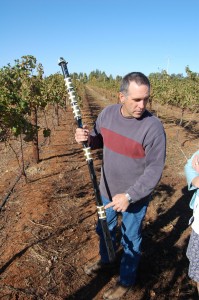“If you want to go quickly, go alone. If you want to go far, go together.” – African proverb, quoted by Al Gore
I got fairly hot under the collar at a Bill Rees’ talk last fall – in my mild-mannered Canadian way. He’s a UBC professor famous for his work on ecological footprints – great stuff, that I’ve used to teach classes in the past. Where I took issue was the tenor of Bill’s talk. To begin with, I never do well with extremely grim forecasts. Being in the environmental field, the future can easily be cast in a dim light, but fearless optimism is more to my taste. We start with the premise that the situation is workable.

World population from 1800 to 2100, based on UN 2004 projections and US Census Bureau historical estimates - by Loren Cobb
Bill’s subject was climate change and population growth, the likely tides of environmental refugees, and how we needed to draw the line in some way on our own growth and development.
I grant that we need to change our approach to the growth of our cities, but as the world approaches 7 billion people this year, we have to accept that some will move here. We even welcome them – Canadians are aging, and we need workers of all kinds and levels of education. Canada is one of the world’s great immigrant nations.
Although climate change is likely to be gentler to western Canada than many other parts of the world, we won’t be untouched. Climate adaptation is, as they say, all about the water. I’m often asked, “When will we run out of water? Should we stop all growth and development?” Continue reading


